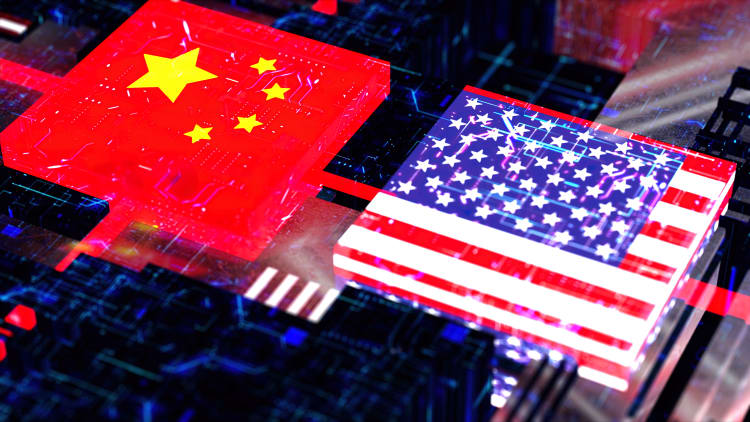China’s Advancements in Artificial Intelligence
Image: Ying Tang | Nurphoto | Getty Images
Chinese regulators have recently established groundbreaking regulations for generative artificial intelligence (AI) in a bid to enhance oversight of this rapidly growing technology. These rules, which will come into effect on August 15, were jointly developed by the influential Cyberspace Administration of China (CAC) and several other regulatory bodies.
Generative AI is an increasingly significant field in which AI services can create content, such as text or images. Notably, ChatGPT by US-based company OpenAI is the most renowned example, enabling users to prompt the chatbot and receive responses to inquiries.

These AI services are trained on massive volumes of data. However, the success of ChatGPT has led to the emergence of rival services, raising concerns among global regulators about the potential risks associated with this technology.
Chinese tech giants have also entered the field, announcing plans and launching their own generative AI services. However, as China maintains tight control over its domestic internet through censorship and regulation, it closely monitors AI development. Chinese regulators are particularly concerned about the possibility of these services generating content that contradicts Beijing’s views or ideology.
This is one of the reasons why Chinese tech firms have been cautious about launching services similar to ChatGPT. Rather than offering fully public services, they have focused on enterprise and specific applications.
For instance, Alibaba recently introduced Tongyi Wanxiang, an AI tool that generates images based on prompts, but it is currently only available to enterprise customers for beta testing.
Nevertheless, the regulations from the CAC provide technology giants with a framework to work with in terms of generative AI.
Understanding China’s Regulations on Generative AI
These regulations will solely be applicable to generative AI services that are accessible to the general public, excluding those developed in research institutions, for instance.
Generative AI service providers must obtain a license to operate, as specified by the CAC.
If an AI service provider encounters “illegal” content, it must take measures to cease generating such content, enhance the algorithm, and report the material to the relevant authority.
Providers of these services must conduct security assessments for their products and ensure the security of user information.
Generative AI services in China must also align with the “core values of socialism,” according to the CAC.
However, regulators aim to strike a balance between positioning China as an AI frontrunner while closely monitoring its development. The CAC’s regulations aim to encourage innovative applications of generative AI and support the development of related infrastructure, such as semiconductors.
Denial of responsibility! VigourTimes is an automatic aggregator of Global media. In each content, the hyperlink to the primary source is specified. All trademarks belong to their rightful owners, and all materials to their authors. For any complaint, please reach us at – [email protected]. We will take necessary action within 24 hours.


